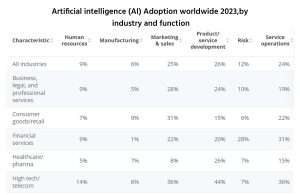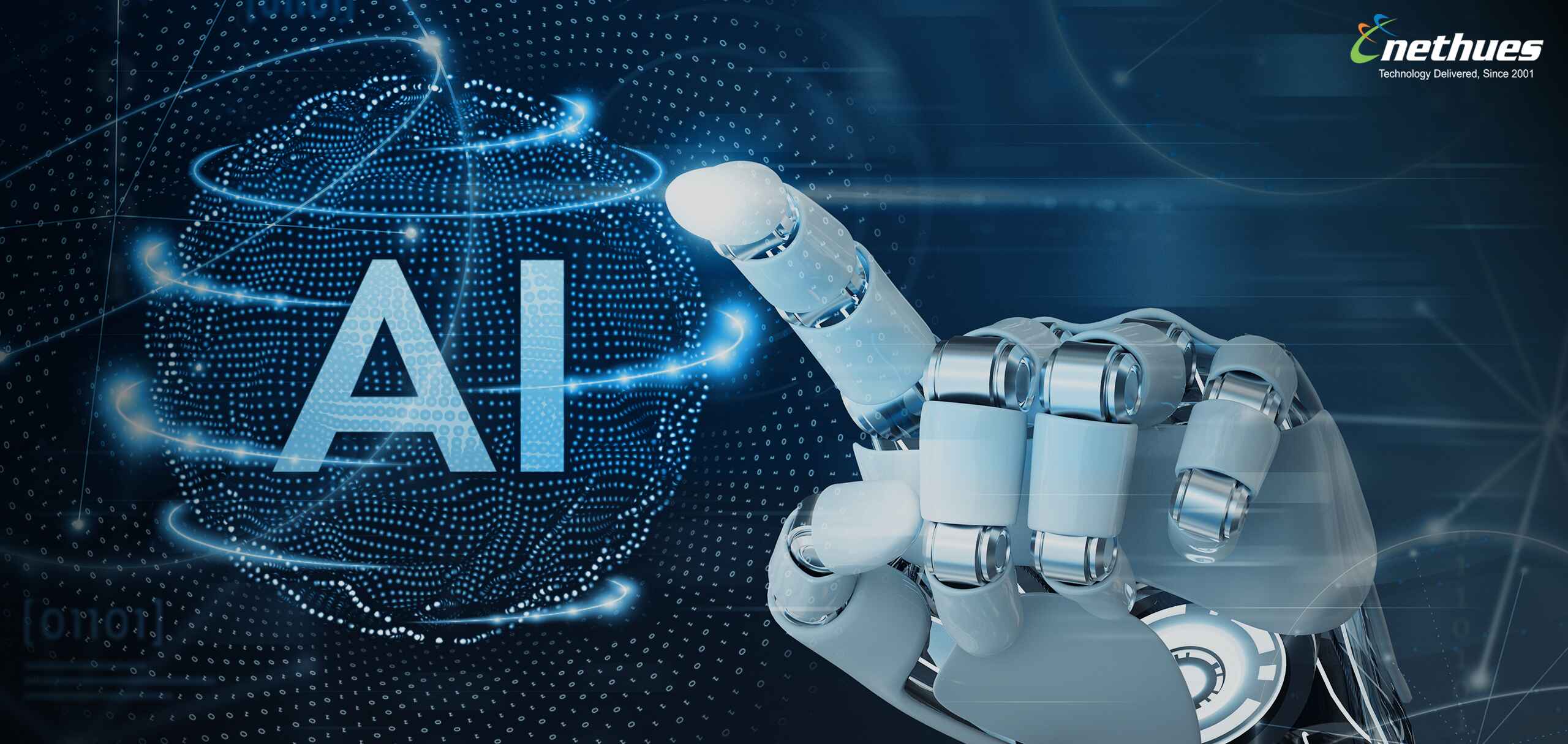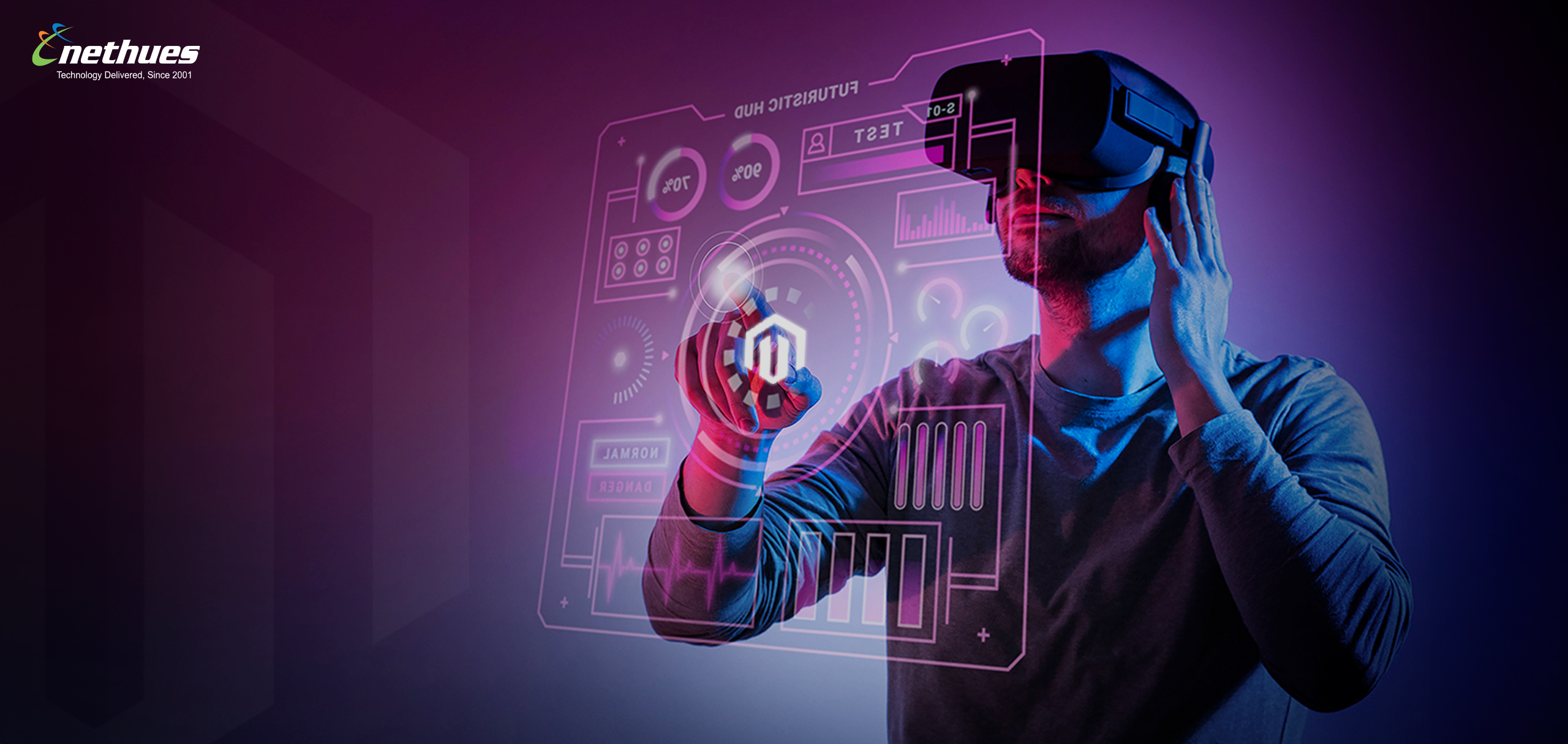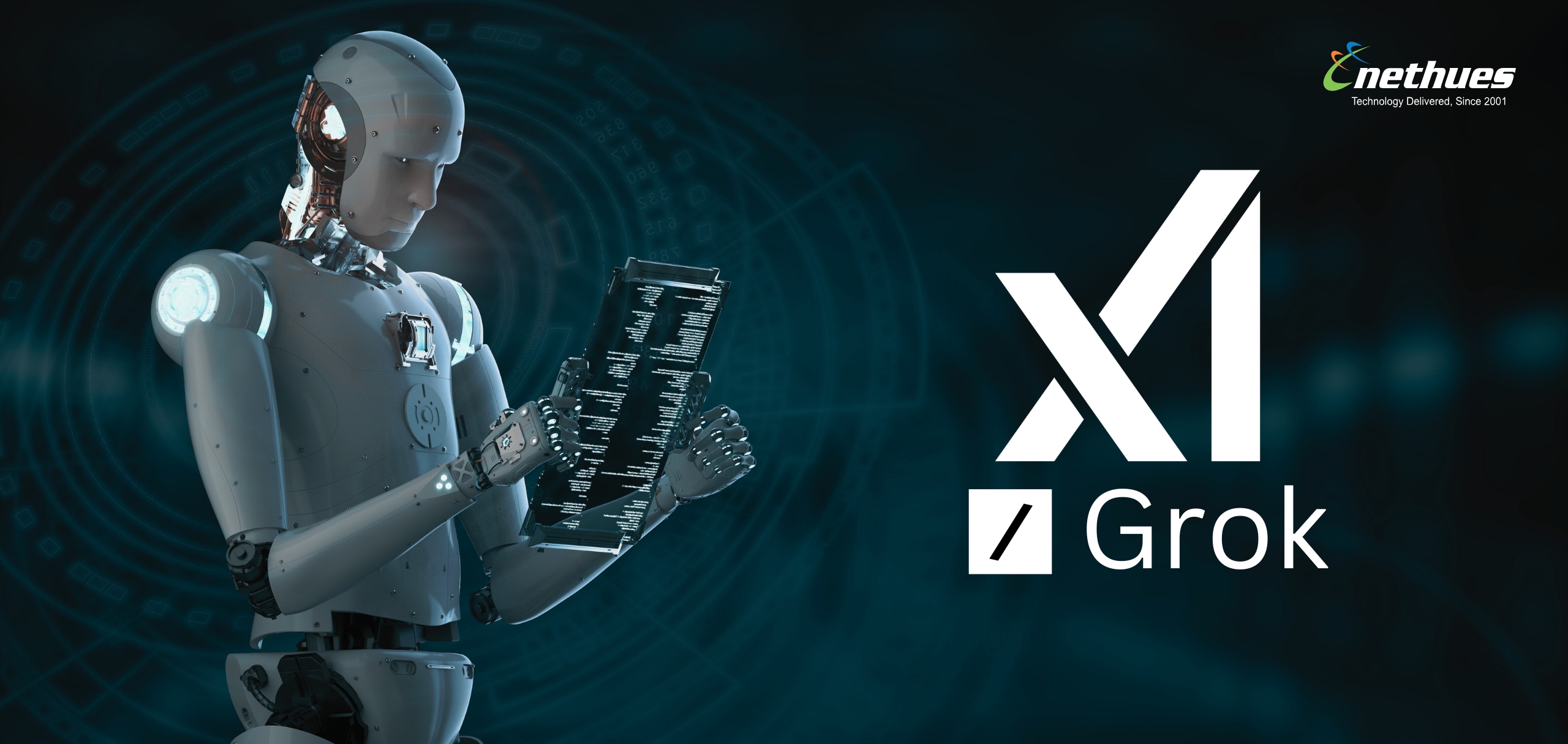Artificial Intelligence is an ever-evolving field that has laid the foundation for various innovative business applications. Combining AI with prevalent technologies has further expanded its popularity and growth.
According to a survey by Statista, the Tech, Media, and Telecoms industries were the most proactive adopters of AI in 2024. Together, they accounted for nearly 44% of the use of AI in distinct ways.
As per a report of MARKETSANDMARKETS, the global AI market size is estimated to cross from $214.6 billion in 2024 to $1339.1 billion in 2030. The compound annual growth rate (CAGR) is estimated at 35.7% for this period.
AI is already helping businesses in numerous ways, and more businesses are willing to adopt it. This blog explores how AI is transforming the world and the most promising trends in the coming years.
What is the future of AI among various business industries?
All modern businesses are witnessing the diverse impacts of Artificial Intelligence. The following industries are witnessing major change.
1. AI in Manufacturing
AI contribution in this industry dates back to the 1960s and 1970s in the forms of robotic arms and other versatile bots. The AI future in the manufacturing industry revolves majorly around automation. Several aspects like quality assurance, key operations, and inventory management can be optimized with AI integration.
Generative AI tools can create digital replicas of physical assets or processes. This will help manufacturers analyze data and create accurate representations of their products, production lines, or entire factories.
2. AI in eCommerce
Artificial intelligence future and trending applications in eCommerce are conspicuous, such as chatbots, personalization, and boosting sales. AI chatbots empower e-commerce businesses with 24/7 customer service, lead generation, and upselling, and they help track delivery status.
3. AI in Healthcare
AI systems are revolutionizing the healthcare industry and defining new ways of interaction between patients and doctors, diagnosis, and more. With AI-backed applications, medical professionals can leverage health records and data for quicker disease diagnosis.
Other significant contributions include robot-assisted surgeries, fraud detection in healthcare claims, virtual assistants, etc. AI in healthcare app development is a proven boon for the business industry. Modern AI applications like deep learning neural networks are useful for analyzing patients’ medical histories, symptoms, and tests.
4. AI in Fintech
As of 2023, financial institutions were using AI up to 31% for service operations, 28% in risk calculations, and 20% in building financial products. The infographic below provides detailed information.

AI development can help financial institutions like banks and insurers make more informed decisions and proactively safeguard against threats. The technology is capable of analyzing customer data to provide personalized financial advice and solutions. ML solutions help traders analyze tons of data to calculate risks before investing.
5. AI in EdTech
AI technologies can help students learn at their own pace. It lays the foundation for quickly building customized learning materials that considers their learning styles and disabilities. Further it also automates several administrative tasks. This can free up teachers’ time to focus on teaching and interacting with students.
Some of the AI models already in use in the education industry are digitizing textbooks, detecting plagiarism, and generative solutions. For example, ChatGPT helps students save time by providing quick answers to questions. Students also use it to generate ideas for essays, presentations, synonyms, etc.
6. AI in the Technology Industry
AI helps developers create unique designs and build immersive applications. The technology lets computer science engineers develop, document, and deliver software. AI also lets you speed up feature additions, bug fixes, and support requests. Many developers use AI with Python programming language as it comes with several powerful libraries and framework for rapid prototyping.
7. AI in Media
Future AI in media can personalized experiences by analyzing data and predicting user behavior. For example, Spotify uses AI to create tailored playlist recommendations. The advanced technology helps to create hyper-realistic game environments, generate content such as art, music, and stories.
8. AI in Telecom
Algorithms and machine learning models allow AI researchers to analyze data to identify patterns and potential failures in telecom networks. This allows operators to proactively fix issues and prevent service disruptions. It can also be used to provide real-time information to service agents and suggest suitable responses based on a customer’s interaction history.
9. AI in Customer Service
Among various businesses trusting AI tools for business growth, customer services is among the obvious ones in the list. As per a Gartner study, 80% of companies are using AI to enhance customer experience.
The technology helps businesses automate recurring tasks and promotes efficient query resolution. AI in future will offer a competitive edge for organizations that use it to interact with their customer base.
10. AI in Autonomous Vehicles
Artificial intelligence can boost the safety and performance of self-driving cars. The future of AI in the transportation industry revolves around enhancing the accuracy of such vehicles. It can help with better sensing, decision-making, predictive modeling, and natural language processing.
Conclusion
AI’s future will be marked by rapid development and widespread integration into people’s lives. It will be more accessible through platforms that lets you develop custom AI solutions without needing technical expertise.






